Social perception of climate change and its relation to food security
DOI:
https://doi.org/10.38017/23228040.748Keywords:
Rainfed agriculture, mitigation, climate perception, social problems, resilienceAbstract
This article aims to analyze the perception of the effects of climate change and its relationship with food security held by peasant producers in the South Pacific coastal region of Mexico. The methodology used has a mixed approach, the method is deductive, with the application of ethnographic research; to collect and analyze the data, a structured survey was applied in 225 Rural Production Units (RPUs) randomly distributed in three municipalities of Oaxaca and three of Guerrero. The results show that 97.78% have perceived that there is a climate change and it has a direct impact on food security because it was determined that 52.59% of the population reported that they have experienced a strong concern about the lack of food. Regarding the characterization of the RPUs, 8% still live inside wooden walls, 12% do not have potable water in their homes. The analysis of the information leads to conclude that food security in the study region is a multidimensional problem: food shortage in the municipalities under study is highly marked; climate change contributes to the worsening of this problem and it is necessary to design local adaptation strategies.
Downloads
References
Aguilar, E. A. E., Caamal, C. I., Barrios, P. G., y Ortiz, R. M. Á. (2019). ¿Hambre en México? Una alternativa metodológica para medir seguridad alimentaria. Estudios sociales. Revista de alimentación contemporánea y desarrollo regional, 29(53), e19625.
Álvarez-Buylla, R. A. E. (2020, 22 de septiembre). Sistema agroalimentario, cuidado ambiental y salud. La jornada. https://www.jornada.com.mx/ultimas/politica/2020/09/22/sistema-agroalimentario-cuidado-ambiental-y-salud-1835.html
Banco Mundial. (1986). La pobreza y el hambre. http://www.fao.org/3/MD776s/MD776s.pdf.
Bringel, B. (2015). Soberanía alimentaria: la práctica de un concepto. Global. http://www.gloobal.net/iepala/gloobal/fichas/ficha.php?entidad=Textos&id=14363&html=1
Cárcamo, R., y Álvarez, A. (2014). La seguridad alimentaria y las políticas públicas. Una visión conceptual. Sociedades Rurales, Producción y Medio Ambiente, 14(27), 98-126.
CONEVAL. (2010). Dimensiones de la seguridad alimentaria: Evaluación Estratégica de Nutrición y Abasto.
CONEVAL. (2019). Medición de la pobreza. https://www.coneval.org.mx/Medicion/MP/Paginas/Pobreza-2018.aspx.
Cruz, L. M. (2011). Comparación del ciclo agrícola actual con el de hace unos diez años en San Juan Jalpa Municipio de San Felipe del Progreso, Estado de México: evidencia de adaptación al cambio climático. Ra Ximhai, 7(1), 95-106.
Delgado, P. M. (2020). Entre la crisis climática y la pandemia: la vía del desarrollo sostenible. https://www.nexos.com.mx/?p=48397
Doering, O. C., Randolph, J.C., Southworth, J., y Pfeifer, R. A. (2002). Effects of Climate Change and Variability on Agriculture Production Systems. Kluwer Academic Publishers.
FAO. (2005). Directrices voluntarias en apoyo de la realización progresiva del derecho a una alimentación adecuada en el contexto de la seguridad alimentaria nacional. Organización de las Naciones Unidas para la Alimentación y la Agricultura.
FAO. (1943). Declaración de la Conferencia de Hot Springs. FAO: its origins, formation and evolution 1945–1981. Organización de las Naciones Unidas para la Alimentación y la Agricultura. http://www.worldfooddayusa.org/?id=16367.
FAO. (2012). Escala latinoamericana y caribeña de seguridad alimentaria (ELCSA): Manual de uso y aplicaciones. Comité Científico de la
ELCSA; Organización de las Naciones Unidas para la Alimentación y la Agricultura.
Galindo, L. M., Alatorre, J. E., y Reyes, O. (2015a). Adaptación al cambio climático a través de la elección de cultivos en Perú. El Trimestre Económico, 82(327), 489-519.
Haro, L. F. (2020, 9 de agosto). Agroecología y la autosuficiencia alimentaria. El Sol de México. https://www.elsoldemexico.com.mx/analisis/agroecologia-y-la-autosuficiencia-alimentaria.
Hernández, S. R., Fernández, C. C., y Baptista, L. M. (2014). Metodología de la investigación (6.a ed.). Mcgraw-hill /Interamericana editores S. A. de C.V.
INCyTU. (2018). Cambio climático y el Acuerdo de París. http://www.foroconsultivo.org.mx/
IPBES. (2019). Summary for policymakers of the global assessment report on biodiversity and ecosystem services of the
Intergovernmental Science-Policy Platform on Biodiversity and Ecosystem Services. IPBES secretariat, Bonn, Germany.
IPCC. (2007). Climate Change 2007: Impacts, Adaptation and Vulnerability. Contribution of Working Group II to the Fourth Assessment Report of the Intergovernmental Panel on Climate Change, M.L. Parry, O.F. Canziani, J.P. Palutikof, P.J. van der Linden y C.E. Hanson (Eds.), Cambridge University Press.
IPCC (2008). El Cambio Climático y el Agua. Documento técnico del Grupo Intergubernamental de Expertos sobre el Cambio Climático (Bates, B.C., Kundzewicz, Z.W., Wu, S., Palutikof, J.P., eds.). Secretaría del IPCC.
IPCC. (2019). Calentamiento global de 1,5 °C. Resumen para responsables de políticas. [Masson-Delmotte V., P. Zhai, H.-O. Pörtner, D. Roberts, J. Skea, P.R. Shukla, A. Pirani, W. Moufouma-Okia, C. Péan, R. Pidcock, S. Connors, J.B.R. Matthews, Y. Chen, X. Zhou, M.I. Gomis, E. Lonnoy, T. Maycock, M. Tignor y T. Waterfield (eds.)]. Unidad de Apoyo Técnico del Grupo de Trabajo I. Intergovernmental Panel on Climate Change. www.ipcc.ch
Leff, E. (2004). Racionalidad Ambiental. La reapropiación social de la naturaleza (1.a ed.). Siglo XXI Editores.
López, F. A. (2013). Climate Change, Agriculture and Poverty: A Household Level Analysis for Rural Mexico. Economics Bulletin, 33(2), 126-139.
Magaña, V., Méndez, J. M., Morales, R., y Millán, C. (2004). Consecuencias presentes y futuras de la variabilidad y el cambio climático en México. En J. Martínez y A. Fernández (Eds.), Cambio climático: una visión desde México (pp. 203-213). Ine-Semarnat.
Mariscal, M. C., Ramírez, M. A., y Alfonso Pérez, S. A. (2017). Soberanía y Seguridad Alimentaria: propuestas políticas al problema alimentario. Textual, (69), 9-26. http://dx.doi.org/10.5154/r.textual.2017.69.001
McMichael, P. (2005). Global development and the corporate food regime. New Directions in the Sociology of Global Development, 11, 269-303.
Munguía, F. Y., y Aguilar, M. M. (2016). Efectos e impactos del cambio climático en el maíz blanco en El Salvador. En Conde, A. A. C y López, B. J. (Coords), Variabilidad y Cambio Climático. Impactos, Vulnerabilidad y Adaptación al Cambio Climático en América Latina y el Caribe Propuestas para Métodos de Evaluación. Instituto Nacional de Ecología y Cambio Climático.
Naredo, J. M. (2000). Ciudades y crisis de civilización, en Documentación Social. Revista de Estudios Sociales y de Sociología Aplicada, (119), 13-37.
Organización de Naciones Unidas (ONU). (1966). Pacto Internacional de Derechos Económicos, Sociales y Culturales. Aprobado y abierto a la firma, ratificación y adhesión mediante la resolución 2200A (XXI), 16 diciembre de 1966, de la Asamblea General. N. Y. https://www.ohchr.org/sp/professionalinterest/pages/cescr.aspx
Organización de Naciones Unidas (ONU). (2017). United Nations Framework Convention on Climate Change. http://unfccc.int/paris_agreement/items/9485.php
Ruíz, S. J., y Cruz, R. M. (2017). Elementos para una crítica de las tendencias recientes de medición del desarrollo y la calidad de vida. Región y Sociedad, (70), 301-321.
Salcedo, M. D. (1998). Autonomía y bienestar. La ética del trabajo social (1.a ed). Comares.
Sánchez, C. M. S., y Lazos, Ch. E. (2010). Indigenous perception of changes in climate variability and its relationship with agriculture in a Zoque community of Chiapas, Mexico. Clim. Chang., 107(3-4), 363-389. http://dx.doi.org/10.1007/s10584-010-9972-9
Sánchez, C. J. E. (2014). La política agrícola en México, impactos y retos. Revista Mexicana de Agronegocios, 35, 946-956. https://www.redalyc.org/articulo.oa?id=141/14131676004
SEMARNAT. (2010). La Economía del Cambio Climático en México. Secretaría de Medio Ambiente y Recursos Naturales; Subsecretaría de Planeación y Política Ambiental.
Sen, A. (1981). Poverty and Famines: An Essay on Entitlements and Deprivation. Clarendon Press.
Souza, S. J., y Victorino, R. L. (2014). Educación Agrícola Superior. Cambio de época. Cámara de Diputados- CDRSSA.
Umpiérrez, S. F. (2006). Una crítica al concepto de pobreza de Amartya Sen. https://www.gestiopolis.com/una-critica-al-concepto-de-pobreza-de-amartya-sen/
WMO. (2019). WMO Provisional Statement of the State of the Climate 2019. https://gcos.wmo.int/en/global-climate-indicators.
Downloads
Published
How to Cite
Issue
Section
License
Copyright (c) 2021 Development, Economy and Society

This work is licensed under a Creative Commons Attribution-NonCommercial-ShareAlike 4.0 International License.





